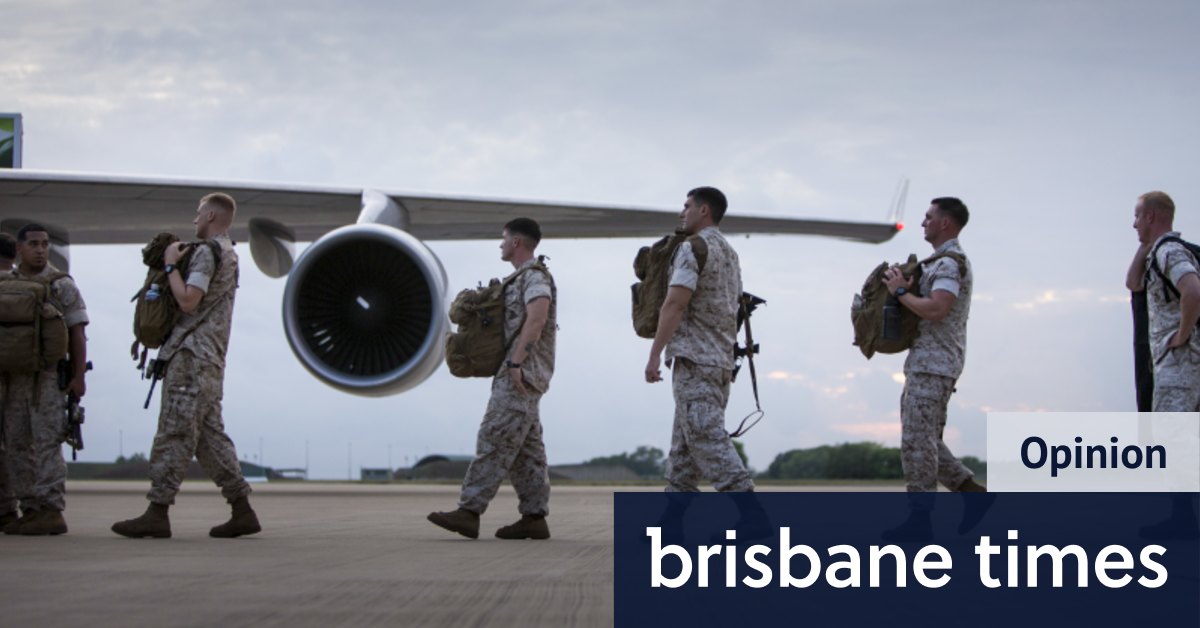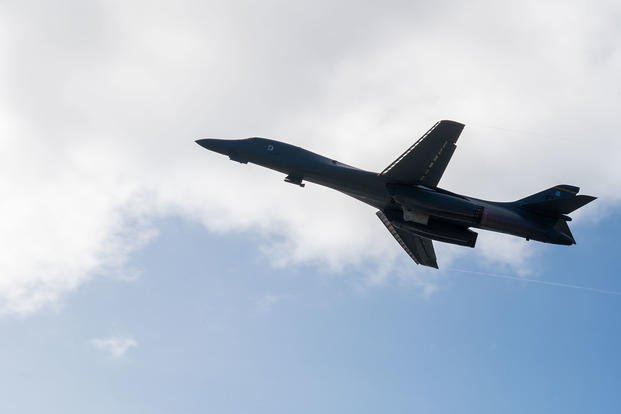
Canberra needs to commission a document for the national security committee of cabinet that scripts our leaders to press Washington and Beijing on the practical measures that would avoid a descent into war.

Canberra needs to commission a document for the national security committee of cabinet that scripts our leaders to press Washington and Beijing on the practical measures that would avoid a descent into war.

At AUSMIN in September 2021, Australia and the USA announced the agreement to enhance force posture cooperation in four key areas to: establish an integrated logistics capability, expand existing enhanced air cooperation, enhance maritime sustainment cooperation, evolve bilateral and multilateral operations and exercises.

The B-1Bs rendezvoused over the Timor Sea with two Australian tankers, which transferred fuel to them at an altitude of 30,000 feet, according to the statement.

Under the 2011 agreement, marines will keep returning to Darwin each dry season for 25 years, ending in 2036. The USA Charges d'Affaires, said the deployments were "just a beginning rather than an end" of the US presence in Australia.

Defence strategist Paul Dibb has urged the upgrade of the RAAF’s Top End “bare bases”, saying the government’s $1.1bn investment in RAAF Base Tindal is a “clear sign of the deteriorating security environment”.
Professor Dibb, who sounded the alarm over the vulnerability of Australia’s north in a landmark 1986 review, also called on the government to consider the acquisition of land-based missiles, to give the nation a credible long-range strike capability.
“We need strike, with significant range. Not short-range. The days of just sitting offshore are gone,” the Australian National University scholar and former intelligence chief said.
US Studies Centre defence analyst Brendan Thomas-Noone said USAF B-52s were likely to be “rotated through” RAAF Tindal.
“It’s about trying to present more targets for China to account for,” he said. “If you are able to land these bombers in Australia, in the Indian Ocean, in other parts of Southeast Asia, up in Alaska, that is a lot of different places that China would have to track, if there was a conflict.
The upgrade of the Tindal base will include major runway extensions, fuel stockpiles and engineering to support Australia’s new Joint Strike Fighters, US Air Force B-52 strategic bombers and RAAF KC-30 air-to-air refuellers.